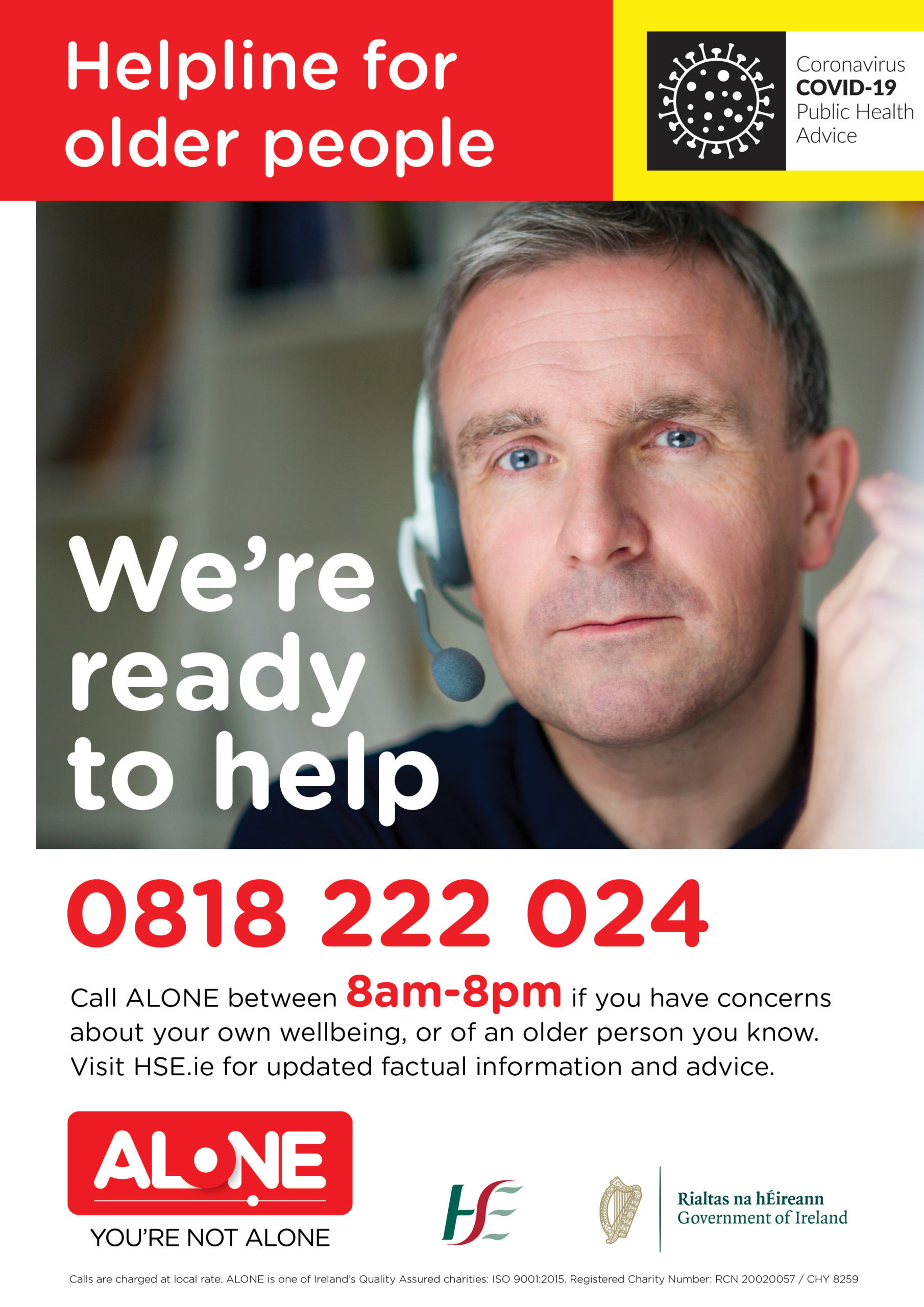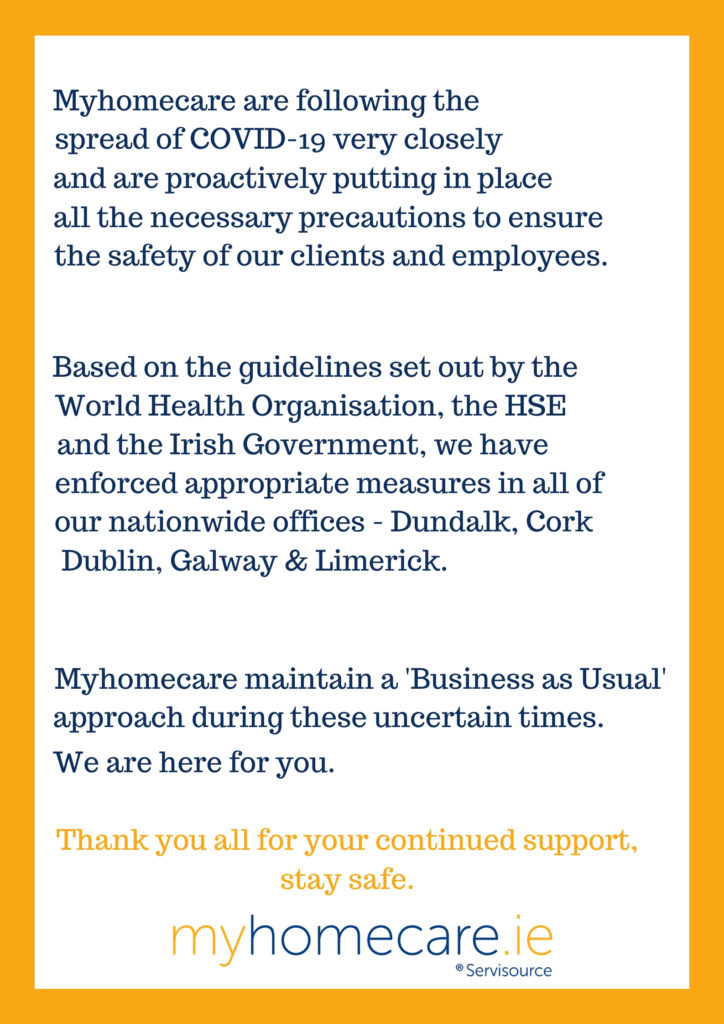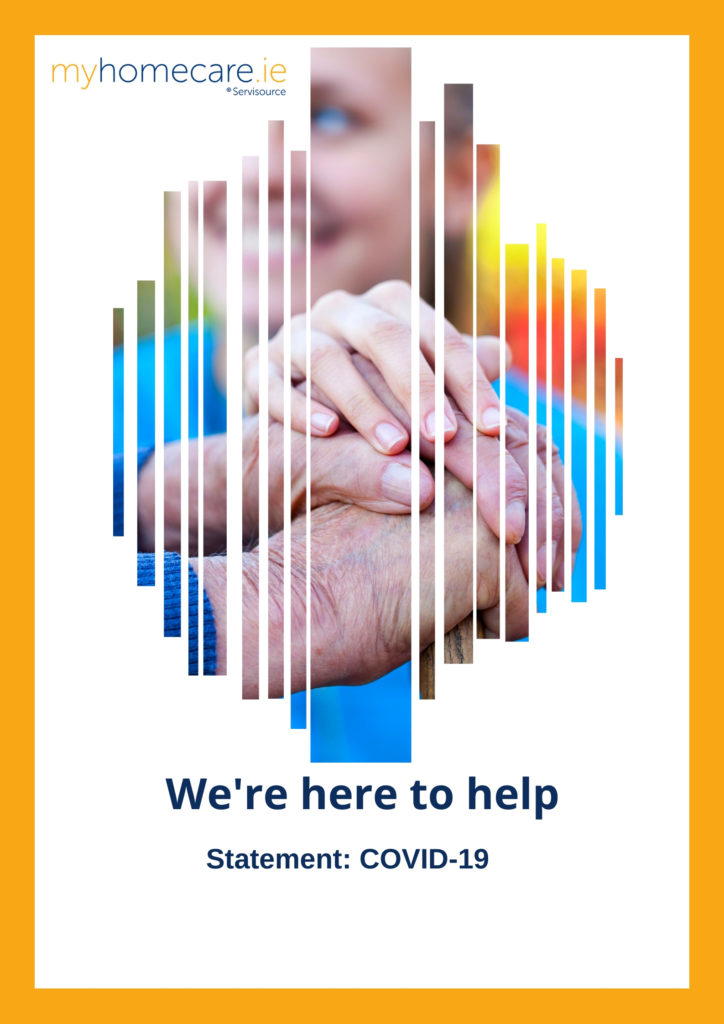Professional Homecare Bill 2020
Myhomecare.ie have welcomed the recently announced Professional Home Care Bill 2020, amendments to the Health Act 2007. This new legislation is designed to provide regulation in the area of professional home care.
Amendments were introduced in the areas of assessment of needs & care planning, complaints procedures, standards of care, protection from abuse and training of personnel. Myhomecare are proud to have already demonstrated an understanding and focus in these areas.
These amendments regard the following general principles as they apply to adults:
· The principal of independent living
· The principal of privacy & dignity
· The principal of quality of care
· The principal of protection of the adult
Myhomecare.ie’s assessment of care needs have included companionship and advanced care planning as standard practice across all of our services for many years. We have also developed and introduced an extensive patient safety programme in 2019. Through this programme we continue to monitor and collect data in the areas of medication management, fall risks and infection control.
ISO9001 accreditation – Quality Management System
Myhomecare successfully maintained ISO9001 accreditation again for 2020 and continue year on year to strive for this very respected achievement. Our care standards are of the highest quality and our mission is to always put our clients and carers needs and feedback first. All of the business operations are audited externally every year to ensure that we are compliant with our quality management system. Due to the COVID-19 pandemic, virtually zero paperwork was used which was another huge achievement for Myhomecare as the audit usually takes place onsite, with all policies, processes and documentation printed out in advance.
JCI Gold Seal accreditation
We have also secured the JCI Gold Seal accreditation for 2020. This reaffirms we are operating a quality service with a core focus on client safety and our dedication to clients and their families. With the JCI award, we are now one of an exclusive group of 24 homecare companies globally who have attained the required standard and the only one in Ireland in our sector.
We now work alongside the JCI team to sustain their standards while continuing to strive for improvement in delivery for all clients receiving care in line with the accreditation’s credo. Paula Wilson, President and CEO of JCI, commended Myhomecare for the dedication to improving services and praised the resilience of everyone involved for persevering during a global pandemic: “JCI commends Myhomecare for its efforts to become a quality improvement organisation and achieving international accreditation which highlights their commitment to patient safety“.
A safer, better homecare
Circumstances this year with the onset of Covid-19 has helped change our business model to a more online presence. Implementing the best technology solutions available and ensuring quality of service are fundamental to us as we try to emerge from the covid crisis even stronger than before.
Our Client Portal is accessible via our website myhomecare.ie and provides access to several different resources, which includes our feedback form. We also provide our clients with an Education Pack which has information on a range of different topics from Nutrition, Diabetes, Alzheimer’s and Fire Safety etc.
Our dedicated recruiters and compliance officer ensure that all our care personnel are up to date with necessary training requirements and we ensure this is possible with continuous support from our own Servisource Training division.
The Myhomecare team continue to lead the way in Ireland in delivering a superior quality service by ensuring our standards are in line with the new government regulations. Myhomecare utilise lean methodologies ensuring we are continuously improving our services. Our quality management system allows us to regularly review and maintain our policies and procedures, enabling us to work in unison to a high standard.
Homecare is not just confined to older people. It includes those who develop a chronic illness, those who have a physical or mental disability or those who are recovering at home after surgery or an illness. Myhomecare.ie deliver the highest quality of safe person centred care, meeting each service user’s individual needs using a holistic approach in accordance with the National Standards of Safer, Better Healthcare and Homecare.





